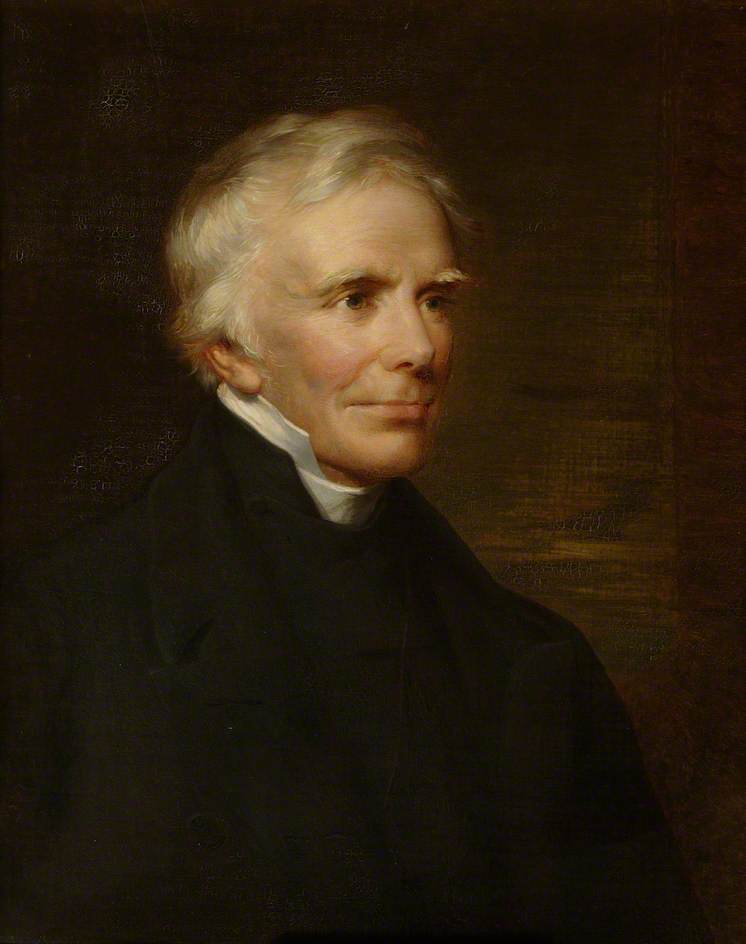
About the Commemoration
John Keble (KEE-bul), the son of a country parson, was born in 1792 at Fairford in Gloucestershire. At the age of eighteen, he graduated with highest honors from Corpus Christi College, Oxford, and was elected Fellow of Oriel College. In 1816 he was ordained priest and in 1823 returned home to assist his father. During this time he published anonymously his collection of religious poetry, The Christian Year; it went through ninety-five editions. In 1832 he was elected Professor of Poetry at Oxford. Four years later he began a thirty-year pastorate at the village of Hursley near Winchester in 1836, where he proved himself to be a devoted parish priest.
The revival of interest in the religious life stirred by the Wesley brothers had by this time been replaced by another period of laxity. The sacraments were neglected, worship was perfunctory, church buildings were left to decay. On July 14, 1833, in Oxford before a distinguished group of judges assembled in the University Church of St. Mary the Virgin, Keble preached a startling sermon entitled “National Apostasy” in which he attacked state interference in Church affairs. This sermon is commonly regarded as the beginning of the Oxford Movement, also called the “Tractarian” Movement from the series of “Tracts for the Times” written by Keble and others from Oxford. These pamphlets sought to recall the Church of England to its ancient sacramental heritage and taught that through its apostolic ministry of bishops, priests, and deacons, it was truly part of the Holy Catholic and Apostolic Church founded by Christ. The Tractarians encouraged the pursuit of personal holiness and emphasized reverence and beauty in worship. Within a generation new life had been breathed into the Church of England and its effects continue to this day.
Although fiercely attacked by his opponents, Keble’s loyalty to the Church never wavered, and he unfailingly displayed consideration and courtesy. His depth of character and his devotion to the Lord impressed all who came into contact with him. He died on March 29, 1866. In 1870 Keble College, Oxford, was founded in his memory.
John Keble is included on the calendar in the Book of Common Prayer.
Excerpts from New Book of Festivals & Commemorations: A Proposed Common Calendar of Saints by Philip H. Pfatteicher, copyright, 2008 by Fortress Press, an imprint of Augsburg Fortress.
See also: John Keble
Reading
From a sermon by John Keble
Let us be only true to our sacred trust: let us put everything else by for the sake of handing down the whole counsel of God, our good deposit, entire as we received it: and who knows but we may by God’s mercy be made instrumental in saving the English Church from ruin not unlike that which has fallen on Ephesus, Smyrna, or Sardis? At any rate, the Church Catholic, in one country or another, we are sure, will survive and triumph. As of old she has stood before kings and governors, and it turned to her for a testimony, so now blessed are they who divine providence shall choose and enable worthily to support her cause against popular delusion and tyranny. We, indeed, as priests of the second order, are but under-labourers in that most holy cause. Yet the least and lowest among us may look for his share of the blessing, as he has undoubtedly his share of the burthen and of the peril. Is there not a hope, that by resolute self-denial and strict and calm fidelity to our ordination vows, we may not only aid in preserving that which remains, but also may help to revive in some measure, in this or some other portion of the Christian world, more of the system and spirit of the apostolical age? New truths, in the proper sense of the word, we neither can nor wish to arrive at. But the monuments of antiquity may disclose to our devout perusal much that will be to this age new, because it has been mislaid or forgotten; and we may attain to a light and clearness, which we now dream not of, in our comprehension of the faith and discipline of Christ. We may succeed beyond what humanly appears possible in rekindling a primitive zeal among those who shall be committed to our charge.
John Keble, “Primitive Tradition Recognised in Holy Scripture,” in R. Nye, ed., The English Sermon 1750-1850 (Manchester: Carcanet, 1976), 197.
Propers
Grant, O God, that in all time of our testing we may know your presence and obey your will; that, following the example of your servant John Keble, we may accomplish with integrity and courage what you give us to do, and endure what you give us to bear; through Jesus Christ our Lord, who lives and reigns with you and the Holy Spirit, one God, forever and ever.
LFF
Readings: Psalm 26:1-8 or Psalm 15; Romans 12:9-21; Matthew 5:1-12
Hymn of the Day: “New every morning is the love” (H82 10, SBH 201); or, in the evening, “Sun of my soul, thou Savior dear” (H40 166, SBH 226)
Prayers: For the renewal of the church and its recovery of its heritage; For all poets and writers in the Christian tradition; For the spirit of love and gentleness in all discussions and controversies about religion; For Keble College, Oxford.
Preface: A Saint (1) (BCP)
Color: White
